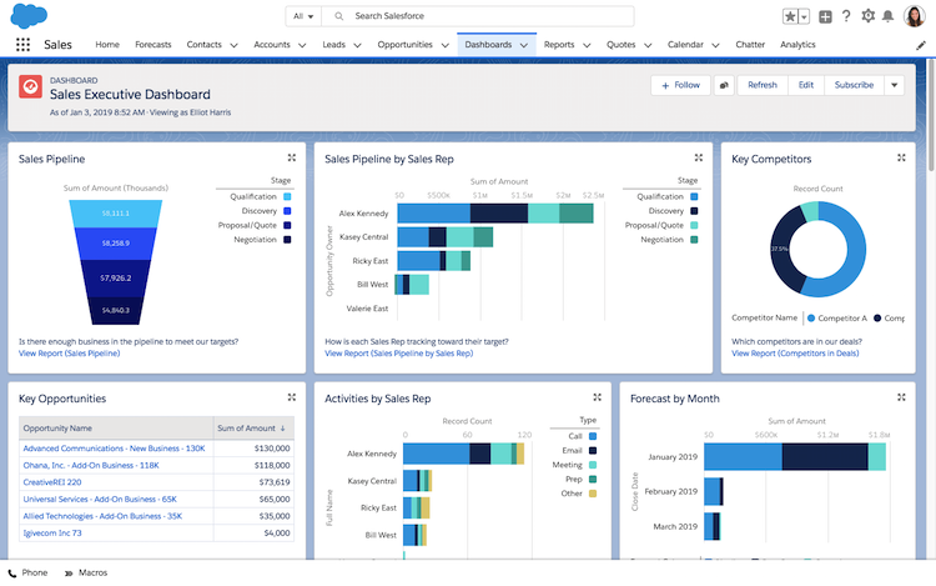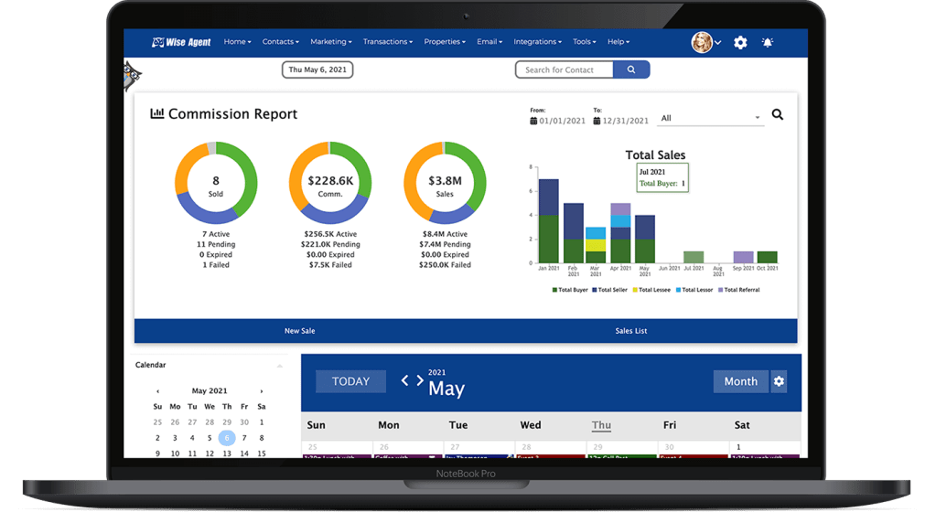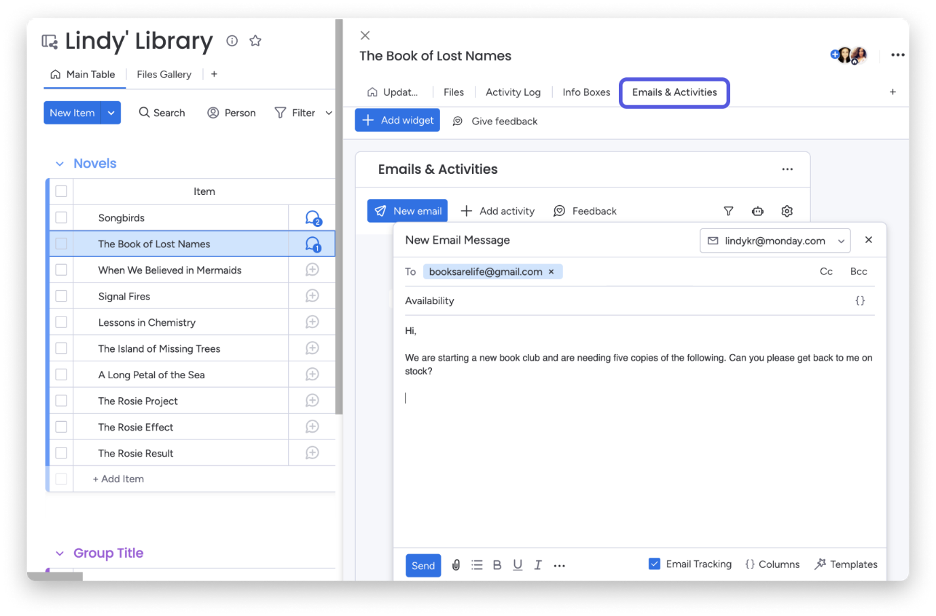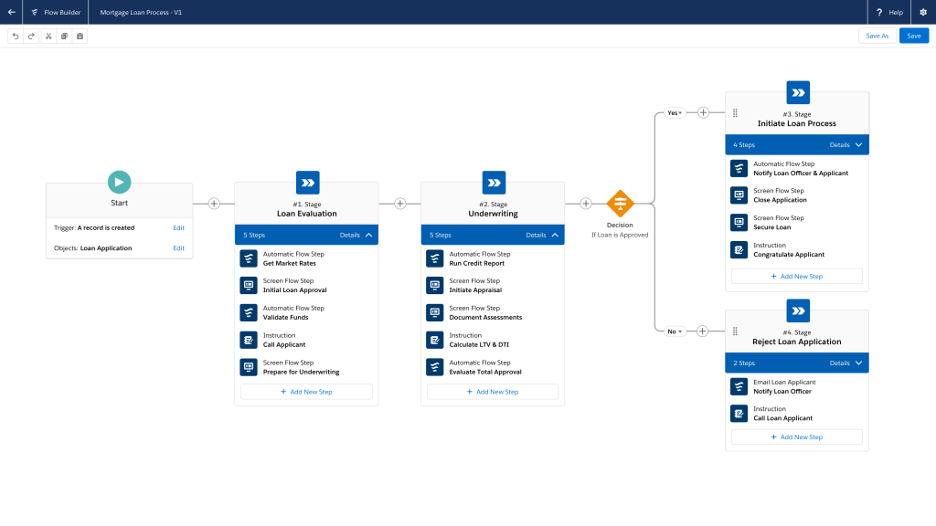MENU
Start
- Best Small Business Loans for 2024
- Businessloans.com Review
- Biz2Credit Review
- SBG Funding Review
- Rapid Finance Review
Our Recommendations
- 26 Great Business Ideas for Entrepreneurs
- Startup Costs: How Much Cash Will You Need?
- How to Get a Bank Loan for Your Small Business
- Articles of Incorporation: What New Business Owners Should Know
- How to Choose the Best Legal Structure for Your Business
Our Guides
- Business Ideas
- Business Plans
- Startup Basics
- Startup Funding
- Franchising
- Success Stories
- Entrepreneurs
Small Business Resources
Grow
- The Best Credit Card Processors of 2024
- Clover Credit Card Processing Review
- Merchant One Review
- Stax Review
Our Recommendations
- How to Conduct a Market Analysis for Your Business
- Local Marketing Strategies for Success
- Tips for Hiring a Marketing Company
- Benefits of CRM Systems
- 10 Employee Recruitment Strategies for Success
Our Guides
- Sales & Marketing
- Finances
- Your Team
- Technology
- Social Media
- Security
Small Business Resources
Lead
- Best Business Phone Systems of 2024
- The Best PEOs of 2024
- RingCentral Review
- Nextiva Review
- Ooma Review
Our Recommendations
- Guide to Developing a Training Program for New Employees
- How Does 401(k) Matching Work for Employers?
- Why You Need to Create a Fantastic Workplace Culture
- 16 Cool Job Perks That Keep Employees Happy
- 7 Project Management Styles
Our Guides
- Leadership
- Women in Business
- Managing
- Strategy
- Personal Growth
Small Business Resources
Find
- Best Accounting Software and Invoice Generators of 2024
- Best Payroll Services for 2024
- Best POS Systems for 2024
- Best CRM Software of 2024
- Best Call Centers and Answering Services for Busineses for 2024
Our Recommendations

Online only. Expires 4/27/2024
Salesforce vs. monday: Definitive Comparison

Table of Contents
Some customer relationship management (CRM) systems, like monday sales CRM, excel in a limited range of functions. The software is superb for helping businesses improve how they market and sell their products and services and how they look after their customers post-sale. Others, like Salesforce, are just as effective but substantially more comprehensive. What really distinguishes Salesforce is that the CRM system can be an integral part of a much larger, enterprise resource planning-like system that manages and monitors almost every function within your business.
In this comparison, we review Salesforce and monday, two of the best CRM platforms available today, side by side to help you decide which is the better option for your business.
Salesforce vs. monday Compared
Here’s a quick comparison of the main points for Salesforce and monday.
Criteria | Salesforce | monday |
|---|---|---|
Starting prices | $25 per user per month | $12 per user per month |
Free trial | 14 days | 14 days |
Sales, marketing and customer service | Multichannel marketing suite, sales prospecting, post-sale client management | Multichannel marketing, user-defined deal and post-deal stages, lead scoring |
Omnichannel communications | Full email integration, phone and social media communication, extensive multichannel options | Third-party email client, phone/VoIP platform, multichannel messaging |
Workflows and automations | Automation customization, AI-driven automation suggestions, developer suite | Workflow automations, team collaboration, post-sale workflows |
Data, reporting and analytics | Informative dashboards, data reliability, in-depth forecasting | Customizable dashboards, range of visualizations, KPI tracking |
Apps and integrations | Huge app store, API platform, innovative add-ons | Good app selection, Zapier and Make integrations, API |
Who Do We Recommend Salesforce for?
Salesforce is the market-leading CRM system for midsize and large businesses, and it’s easy to see why. It’s capable and powerful enough to help coordinate and integrate departments, such as sales, marketing and customer service.
Salesforce handles a vast range of functions, including CRM workflow automations and lead management, either natively or via a plug-in from its enormous app store. Salesforce has everything a developer needs to customize the Salesforce CRM system to fit their exact requirements. For companies that want to generate more leads and improve conversion and reorder rates, Salesforce is an excellent enterprise solution that connects seamlessly to other critical business software.
- Salesforce is scalable, so you can expand your CRM functionality as your business grows.
- The Salesforce CRM can be used to house all customer data and act as a single source of information for all departments.
- Salesforce’s Einstein AI tool is great for generating sales predictions and recommendations.
Read our full review of Salesforce CRM for more information.

A dashboard for a sales executive using Salesforce showcases their pipeline and sales opportunities. Source: Salesforce
Who Do We Recommend monday for?
Not every company requires an enterprise solution like Salesforce. Instead, they need a simple, user-friendly and capable platform that helps them bring in more leads, turn more of them into sales and look after their customers. Monday fits that bill perfectly.
Although monday may be best known for its project and performance management tools, monday sales CRM is an excellent solution for sales teams. The intuitive platform helps sales teams convert leads into customers. It can be easily customized to mirror your business’s existing processes, and the workflow automation features are great for streamlining sales operations and saving time. It’s very budget friendly, too.
- monday sales CRM combines the best of project management and sales technology into one solution.
- monday can integrate with Salesforce for greater service.
- All four packages include access to 24/7 customer support.
See our monday sales CRM review to find out more.

A customized dashboard for a real estate agent in monday sales CRM can show their sales, commission and more. Source: monday.com
Salesforce vs. monday Comparison
We compared pricing and five significant feature groups across the Salesforce and monday CRM platforms so you can evaluate which platform is more suitable for your business.
Pricing
Salesforce
Plan | Price per user per month | Features |
|---|---|---|
Essentials | $25 (up to 10 users) |
|
Professional | $80 | All Essentials features, plus these:
|
Enterprise | $16 | All Professional features, plus these:
|
Unlimited | $330 | All Enterprise features, plus these:
|
With the exception of the Essentials plan, you must pay your subscriptions annually in advance.
Even though it has a low entry point, Salesforce is among the most expensive CRM solutions on the market. Many third-party apps — plus native features, like Einstein AI, sales dialer and CPQ — are paid add-ons. This may make it harder to judge how much Salesforce will cost you from the outset. It also may make this CRM system unaffordable for some smaller companies. Fortunately, Salesforce offers a 14-day trial so you can see if this CRM is the optimal choice for your business.
monday
Plan | Price per user per month | Features |
|---|---|---|
Basic | $12 (minimum of three users) |
|
Standard | $17 | All Basic features, plus these:
|
Pro | $28 | All Standard features, plus these:
|
Enterprise | Custom quote | All Pro features, plus these:
|
In contrast to Salesforce, monday is a very budget-friendly option. You must pay for a minimum of three users. After that, pricing goes up in increments, with choices of five, 10, 20, 30, 40, 50, 100 or 200+ users. This arrangement may mean that you restrict access to selected users or pay for more users than you need if you want everyone to have access.
monday also offers a free trial, but Salesforce and other competing CRM platforms may be better options for enterprises that want 100 or more seats.
Winner: monday
monday wins on pricing because of its less-expensive plans, all of which pack in a lot of features for the money. However, its rigid seating numbers are a downside. Salesforce is expensive but offers a more scalable and adaptable solution, making it a better CRM for larger enterprises.
Sales, Marketing and Customer Service
Salesforce
- Multichannel marketing: We love the choice Salesforce gives you for running online ads, telephone marketing, text message marketing and social media marketing campaigns straight from the dashboard. You can send 5,000 emails a day via the platform. It’s really easy to segment customers for more targeted campaigns, using criteria such as VIP customers, region and, where applicable, line of business.
- Lead handling: Set up your own deal stages and monitor progress in real time. You can get live and updated predictions on when individual deals may close and for how much. You can also personalize the selling process by including extra data in custom fields for each prospect.
- Post-sale features: Get access to customers’ complete histories right when they contact you. You can also stay in touch by setting up email newsletters and follow-up promotional emails. Salesforce CRM also perfectly integrates with Service Cloud, the vendor’s more focused customer service solution. [Read our Salesforce Service Cloud review.]
monday
- Full marketing suite: Run SMS (text message), WhatsApp, social media, pay-per-click ads, email marketing campaigns and more from within the monday platform (though some channels require integrations). We were particularly impressed by the email template, drag-and-drop email builder and PhoneBurner app for telemarketing campaigns.
- Salespeople tools: Sales staff will appreciate the lead-scoring tool to help them prioritize which deals to chase. They can also tag leads with helpful prompts — like “follow-up after (x) months,” “closing” and “qualified” — to better manage the sales process. We liked the configurable dashboards and the ability to track key performance indicators (KPIs), targets and other real-time metrics.
- After the sale: We like how monday completes the sales cycle with workflows specifically for invoicing and sending out contracts. These client onboarding features provide a smooth and stress-free customer experience, a key step in building relationships with clients who buy again and again.
Winner: Salesforce
Salesforce is the clear winner for businesses that need complete control over all areas of their marketing, sales and customer service efforts in one system. However, monday has many strong CRM features — more than enough for a small business.
If you’d prefer to continue using your current email marketing software provider, check whether the CRM system you’re considering has an integration for it. We also recommend checking out our picks for the best email marketing software to ensure you’re using the right product for your business.
Omnichannel Communications
Salesforce
- Comprehensive email integration: You can email via your Gmail, Outlook and standard IMAP and POP3 accounts from within the Salesforce CRM. We like how the interface makes it easy to send and receive emails. You can also create professional-looking emails from the generous supply of templates.
- Phone and social media features: We like how easy it is to make and receive calls across different devices, thanks to tools like the click-to-dial function. The native and third-party plug-ins to Facebook, Instagram, X (formerly Twitter) and LinkedIn are excellent for real-time two-way customer communication.
- Extensive multichannel capabilities: We appreciate how intuitive Salesforce has made it to contact customers by SMS, MMS, WhatsApp and other private messaging platforms — something clients are increasingly demanding from the firms they do business with.
monday
- Email integration: Seamlessly integrate your Gmail, Outlook and other accounts with monday CRM so your staff can send, receive and manage their emails from the dashboard as well as sync their calendars.
- Voice communication: Your staff can make and receive phone calls to prospects and customers from within the platform. We like that monday makes it simple to add notes to contact records, set follow-ups and even record calls.
- Multichannel messaging: Send and receive text messages through Twilio, and use other plug-ins from the app store to contact customers on platforms such as WhatsApp and Facebook Messenger.
Winner: Salesforce
Salesforce has the edge here because its communication features are better integrated within the platform and it offers more tools. Plus, compared with monday, it’s not as reliant on third-party apps for connectivity.

Sending an email from the dashboard in monday is similar to using most email products. Source: monday.com
Workflows and Automations
Salesforce
- Customizable and dynamic automation: We like how granular and specific you can make automations. For example, you can trigger alerts for reps to gather specific information from a lead before the prospect moves to the next stage. With the right plug-ins and subscriptions, there are also many opportunities to create custom workflows in other areas of the business.
- AI-driven task automations: Einstein, Salesforce’s artificial intelligence tool, is the most advanced we’ve seen in any CRM system. We love how Einstein’s Next Best Action feature makes suggestions for streamlining and improving workflows.
- Great developer tools: Developers will really appreciate Salesforce’s efforts to make it easier to create custom apps. We really like the drag-and-drop editor in Flow Solutions for building out complex automations. The pre-built Bolts in the app marketplace will save dev teams a lot of time, too.
monday
- Sales workflow automations: We were particularly impressed by how you can customize workflows and processes across multiple sales pipelines. This will help reps stay organized and on top of each deal. You can program time-saving tasks at each stage of the sales cycle, like sending follow-up emails when a deal moves to a new stage or the lead status changes.
- Enhanced team collaboration: We appreciate that managers can share customer dashboards with their teams, allowing them to see real-time deal progress, sales figures and other metrics. Sales reps view prospective deal values and a closing probability for each to help them organize their time better.
- Post-sale automations: Stay in touch with customers with smart automations, like automatic post-purchase “thank you” messages, regular email newsletters, subscription renewal reminders and even birthday emails. We like that you can set reminders for sales and customer service reps to follow up and stay in touch, which is vital to winning loyalty and repeat business.
Winner: Salesforce
Salesforce takes this round thanks to the sheer range of automations and advanced developer tools. In addition, Salesforce’s drag-and-drop interface is easier to use than monday’s formula-driven workflows.
Read our review of HubSpot if you’re interested in another CRM you can customize using a drag-and-drop interface.

Workflows in the Salesforce CRM with Einstein AI use artificial intelligence to build automations. Source: Salesforce
Data, Reporting and Analytics
Salesforce
- Informative dashboards: Salesforce’s customizable dashboards are excellent. They enable reps and managers to track conversion rates, sales trends, customer satisfaction levels and more. The platform comes with dozens of modifiable reports that you can tailor to get the exact information you need.
- Data reliability: We were impressed by Salesforce’s attention to data accuracy. The company’s Duplicate Management and Data Integration services identify and replace incorrect customer information from third-party sources.
- In-depth analytics and forecasting: The granularity of the data analysis and sales forecasting in the Salesforce CRM is stellar. The Collaborative Forecasting feature is excellent for setting sales KPIs and letting users analyze revenue trends and team performance. Whatever Salesforce tracks, you can analyze it to find potential improvements.
monday
- Customizable dashboards: We really like how you can add custom widgets — like calendars, deal timelines and upcoming tasks — to users’ dashboards. This functionality helps staff stay organized and on top of tasks.
- Flexible, eye-catching visualizations: The graph and chart options on monday are great for illustrating important data points. You can use Kanban for deal management, Gantt for timelines, Cards for quick summaries, and Files for document organization.
- KPI tracking: monday excels at providing sales teams with real-time insight into where every deal is in the sales pipeline. Managing sales teams is complex, so we appreciate that the platform flags star performers and training opportunities.
Winner: Salesforce
Although Monday’s reporting and analytics tools are superb, Salesforce is better in this area overall because its analytics are more thorough and detailed.
CRM software has made big data, previously the domain of large corporations, available to small businesses. You can connect your CRM system to primary data sources to analyze web data or link your CRM to a specialist data analysis site, such as InsightSquared, for further insights.
Apps and Integrations
Salesforce
- Very large app store: Choose from thousands of apps (including many free apps) covering an extensive range of use cases and industry sectors. The search bar and drop-down menus make it easy to find what you’re looking for.
- API platform: In addition to Salesforce’s excellent Bolts and Flow Solutions mentioned above, developers will really appreciate the dev console, where they can write code, test and debug new features without affecting the core CRM.
- Innovative add-ons: Salesforce used to have a reputation for being hard to use, but its recent embrace of drag-and-drop, low-code and no-code functionality has been executed superbly. The Components in the AppExchange are welcome, too — they’re selections of reusable code that developers can use to build custom apps.
monday
- Good selection of apps: monday offers around 200 integrations, including Slack, Microsoft Teams and Google’s suite of business tools. There’s a good selection of marketing integrations, too, including HubSpot, Mailchimp and Hootsuite.
- Zapier and Make integrations: There are many pre-built Zapier and Make plug-ins to make it easier to connect to other apps, like e-commerce platforms and customer service software. However, you may need to hire a freelance coder to build some of the connections for you.
- Robust API: We were impressed by the accessibility of monday’s open API and its accompanying software development kit. You can use both to create tailored data and connections to other apps, like accounting software and email marketing platforms.
Winner: Salesforce
Salesforce wins this category thanks to its expansive AppExchange, developer-friendly API and innovative extras, like Components, Flow Solutions and Bolts.
Salesforce vs. monday Recap
Choose Salesforce if …
- You want a scalable CRM system that will grow with your business and connect to the broadest selection of other business apps and software.
- You need your CRM system to be as customizable as possible so you can fit it into your existing business processes.
- You’re looking for a proven set of tools to improve sales, marketing and customer service teams’ performance.
Choose monday if …
- You want a CRM system for improving revenues and customer retention but don’t need an enterprise CRM.
- You have a tight budget per user per month.
- You’re looking for a CRM that you can modify slightly without incurring developer expenses or a steep learning curve.
FAQs
Whether monday is better than Salesforce depends on your needs. Salesforce’s CRM is more adaptable and customizable than monday’s. In fact, it can do a lot more than monday natively and through its app store. However, monday may be a better choice for a smaller company on a budget.
Salesforce has a number of competitors, including monday, Zoho, Oracle NetSuite, SAP, Zendesk and HubSpot. Our guide to choosing CRM software can help you narrow down your options.
Though monday and Salesforce are two stand-alone CRM platforms, monday users can also use Salesforce with the proper integration. For example, some companies may use Salesforce for their sales and marketing initiatives but connect to monday for development projects.
Monday may be the best CRM for smaller companies that want to improve their sales, marketing and customer service team performance on a budget. It’s not the most flexible, adaptable or highly powered CRM software on the market, but most small businesses don’t need an expensive, top-of-the-line product to run their organizations better. monday is also one of the best project management apps.






